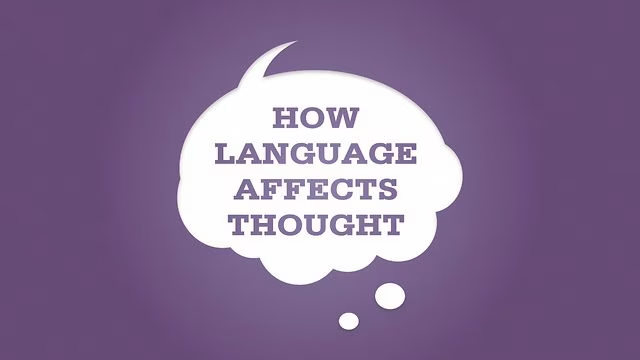Have you ever thought about how the language you speak might actually change the way you think? It’s not just about communicating your ideas – the words you use and the grammatical structures you rely on subtly shape your perception of reality. This fascinating concept is known as Linguistic Relativity, and it raises some big questions about how we construct our understanding of the world.
The Colors We See (And the Colors We Don’t)
Let’s start with a simple example: color. In English, we have a tidy set of words for colors – red, blue, green, etc. But did you know that some languages have multiple words for what we might simply call “blue”? Or that some languages don’t distinguish between green and blue at all? It turns out, these differences in how languages categorize colors can influence how we see them.
Lost in Translation: When There are No Words for Left or Right
Imagine you don’t have words for “left” and “right.” How would you navigate the world? Some Aboriginal communities in Australia rely on cardinal directions (north, south, east, west) for everything, even describing how a person is sitting. This means they have an incredible sense of spatial awareness that most of us would struggle to imagine.
Time Travel, Sort Of
How we talk about time can also be influenced by our language. Some languages are written from right to left, and research suggests this may influence how their speakers perceive the flow of events. Other languages have very intricate ways of describing past events, forcing speakers to be extra attentive to when something happened.
Was It Me or an Accident?
Different languages frame events with varying emphasis. Did someone break a vase on purpose, or was it a mishap? Some languages focus on the person, while others emphasize that it was accidental. This subtle nuance can influence our memory – who was responsible, and how we later remember the situation.
The Many Faces of You
If you’re lucky enough to be bilingual or multilingual, you’ve probably noticed how switching languages can sometimes feel like a shift. Studies suggest that we may exhibit slightly different personality traits depending on which language we’re speaking, tapping into different cultural frameworks that we’ve absorbed.
Language as a Tool for Empowerment
Even the way we talk to ourselves in our own language can shape our feelings and confidence. Deliberately choosing positive and self-affirming phrases activates parts of the brain associated with reward and positive self-perception.
Language Learning: A Transformative Journey
As a language learner, these ideas are probably both exciting and a little daunting. Learning a new language isn’t just about gaining a new way to communicate – it’s opening a door to an entirely different perspective on the world. Here’s why you should embrace the challenge:
- Mind Expansion: Understanding how language shapes reality stretches your mind and helps you appreciate the incredible diversity of human thought.
- Cultural Exploration: Language is a window into culture. Learning a language deeply immerses you in new ways of living and thinking.
- New Connections: Speaking another language opens up opportunities to connect with people from different backgrounds, building bridges, and fostering understanding.
So next time you’re learning vocabulary or practicing verb conjugations, remember: you’re not just memorizing words. You’re on a journey to see the world in a whole new light.
Enjoy.
